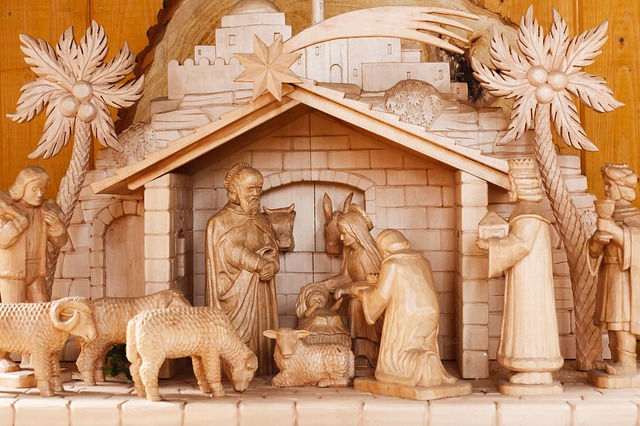Feast of the Holy Name of Jesus
(Numbers 6:22-27; Psalm 8; Galatians 4:4-7; Luke 2:15-21)
PDF | Text:
At first glance, today is a very literal sort of feast. We celebrate the Holy Name of Jesus because it is the eighth day of Christmas and, as our Gospel reading says, “After eight days had passed, it was time to circumcise the child; and he was called Jesus.”
Aside from reminding us that Mary got the name from her Angel visitor, that’s pretty much all Luke gives us. Since we couldn’t very well have a one-sentence Gospel lesson, the lectionary leads into that verse with the details that come before it, of the shepherds’ visit to the Christ-child.
And so I found myself playfully revising the message of the Angel: “you will find a child wrapped in bands of cloth and lying in a manger—and wait ‘til you get a load of what they’re calling him.”
But our commemoration and our Gospel reading start to make sense when we consider what the name actually signifies. You may know that Jesus is the Greek form of the Hebrew name Joshua, which means “God has saved” [translation by Marion Lloyd Soards in the New Oxford Annotated Bible, p. 97].
And actually, that part is in the Angel’s words to the Shepherds: “I am bringing you good news of great joy for all the people: to you is born this day in the city of David a Savior, who is the Messiah, the Lord.” God has saved. That’s what the shepherds went to the stable to see. That’s who they went to see.
So there’s a more substantial reason to celebrate the Holy Name of Jesus today, or at least during the season of Christmas, our great feast of the Incarnation of God in Christ. By speaking “God has saved” on, if you will, the liturgical anniversary of Jesus’s circumcision and naming, we remind ourselves that Jesus’s whole life was his saving act for those who would be baptized into it. His whole life was his saving act.
There will be other reminders of this insight along our path as we walk with Jesus from Creche to Cross and then beyond. When we sing the Great Litany during Lent, we will ask the Lord’s deliverance not just “By thine Agony and Bloody Sweat; by thy Cross and Passion; by thy precious Death and Burial; by thy glorious Resurrection and Ascension,” but also “By the mystery of thy holy Incarnation; by thy holy Nativity and submission to the Law; by thy Baptism, Fasting, and Temptation.”
Yes, when the shepherds brought their flocks, when the Magi brought their gifts, when Mary and Joseph loved and cared for him, Jesus was saving us. Each time he read Torah, each time he swung a hammer, each time he healed the sick, each time he welcomed a child, each time he taught the crowds, Jesus was saving us. His whole life was his saving act. His whole life he was saving us.
So perhaps there’s one last reason why it’s a good and holy thing for us to celebrate the Holy Name of Jesus on this particular day. For many of us, New Year’s Day means a renewed commitment to live lives more in touch with our deepest desires: health, wholeness, relationship, thanksgiving, generosity.
If, with God’s help, we are to succeed, we’ll do a little bit each day—with every decision, with every simple act. Thus, we’ll experience God’s gift of salvation and fullness of life in the same way Jesus offered it.
So remember that the next time you’re feeling bored or overwhelmed by what feels like a trivial task, or dozens of them. Remember it when you fall back into old habits despite your best efforts, or fall into new ones by a power you didn’t know you had.
Remember it when you meet someone who’s having a bad day, or someone who can’t remember the last time he or she had a good one. Remember the baby, the boy, the man whose mother named him “God has saved.”
And remember how he did it: with his whole life, for our whole lives. Thanks be to God.
